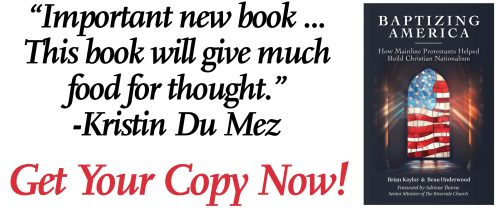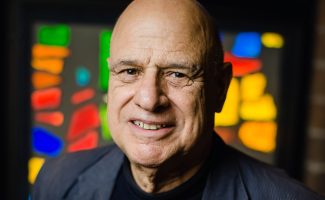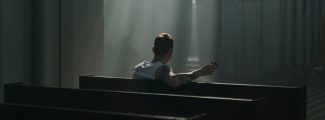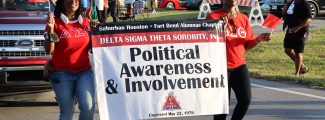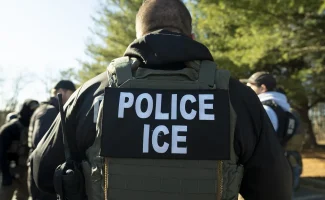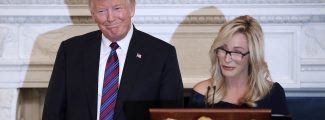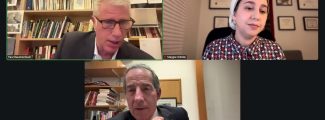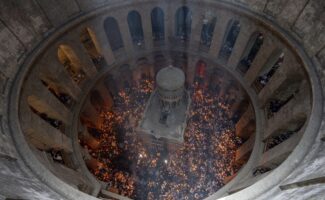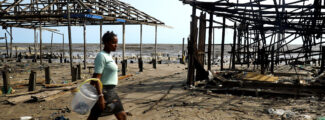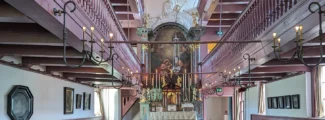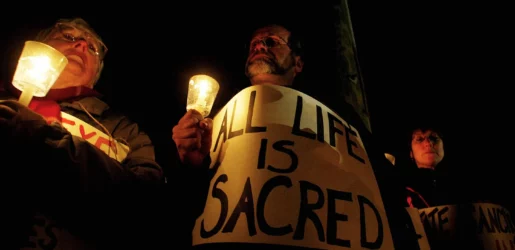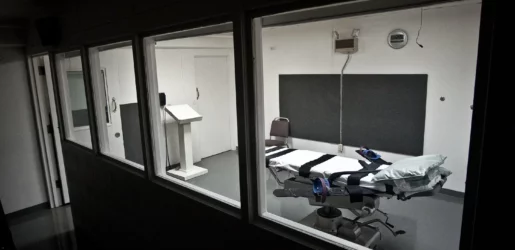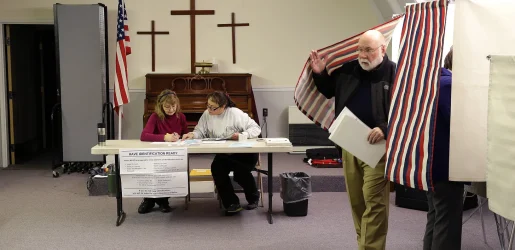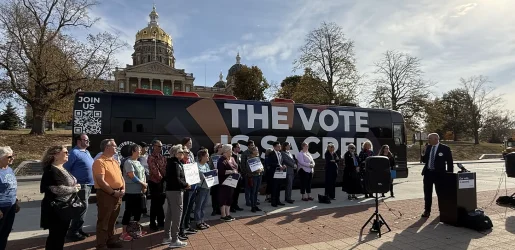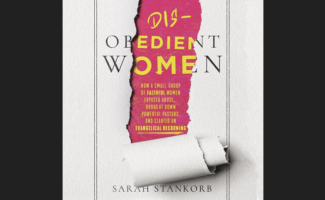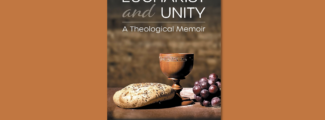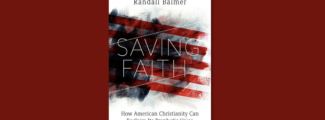Sign up to receive full essays in your inbox!
Featured
State Department Wants Staff To Report Instances of Alleged Anti-Christian Bias During Biden’s Term
In a cable sent Friday to all U.S. diplomatic missions, Secretary of State Marco Rubio asked that staffers report any perceived discriminatory actions due to things like opposition to vaccines or personal pronoun choice.
Joan Brown Campbell, Global and National Ecumenical Leader, Dies at 93
Campbell, who also was the director of religion at the Chautauqua Institution, was described as 'an extraordinary ecumenist and activist' by Bishop Vashti McKenzie, the current NCC general secretary.
Federal Judge Sides With Trump in Allowing Immigration Enforcement in Houses of Worship
U.S. District Judge Dabney Friedrich in Washington refused to grant a preliminary injunction to the plaintiffs, more than two dozen Christian and Jewish groups representing millions of Americans.
Church
Tony Campolo, Sociologist and Famed Red Letter Christian, Has Died
Known as a powerful evangelist and social justice preacher, Campolo had long advocated that Christian faith can transform the world — and people’s everyday lives.
To Feel Safe in the Pews, Trauma Must Be Acknowledged, Spiritual Directors Say
Despite the growth of trauma-informed ministry, religious leaders believe that more needs to be done for the church and other sacred spaces to be healthy, safe places of connection for congregations.
Black Churches and ‘Divine Nine’ Fraternities and Sororities Partner To Boost Black Vote
Theologian Candice Marie Benbow said, ‘We live at this intersection of being Black faith people and Black people who are in Greek letter organizations who are committed to communal uplift.’
Nation
Judge Freezes ICE Raids at Quaker & Cooperative Baptist Churches
A religious coalition won the first round of faith-based litigation against the Trump administration — but the scope of the preliminary injunction is limited.
Trump’s Pick To Run White House Faith Office Sparks Theological Turf War
Idaho pastor Doug Wilson referred to White-Cain as an ‘erratic woman preacher who has been all over the map.’
An Interfaith Response to Trump’s Attacks on Religious Communities
Interfaith Alliance conducted a briefing featuring several notable speakers who covered the Trump administration’s unprecedented violations of religious freedom during its first month and discussed the best ways to counter through collective action.
World
Heads of Churches Say Israeli Government Is Demanding They Pay Property Tax, Upsetting Status Quo
There are 182,000 Christians in Israel, 50,000 in the West Bank and Jerusalem, and 1,300 in Gaza, according to the U.S. State Department. The vast majority are Palestinians.
It Was Meant To Be a Christian Utopia. Now This Nigerian Community Is Helpless Against Rising Seas
Buildings have sunk into the Atlantic Ocean, an increasingly common image along the vulnerable West African coast.
Our Lord in the Attic
This issue of A Public Witness explores how a hidden 17th-century church in Amsterdam can teach us lessons about the need for religious freedom and a pluralistic public square.
Editorials
When a Bible Publisher Doesn’t Read the Bible
Editor Brian Kaylor looks at the recent litigation filed by LifeWay Christian Resources and asks how they could have decided to take such an action. The sad case is yet another example of Christians hurting our witness with lawsuits.
Learning During Coronavirus
Editor Brian Kaylor reflects on his son doing school at home this year due to coronavirus, and what this says about our society, our values, and some our politicians and preachers.
Stop Being Political
Editor Brian Kaylor reflects on the claim that preachers or other Christians should stop being so political. Looking at biblical examples, he argues that living out our faith means being political (but that does not mean one must be partisan).
Word&Way Voices
Unsettling Advent, Day 5
Many things have changed since ‘Let anyone among you who is without sin be the first to throw a stone at her’ was written, but not who receives the harshest punishments: those with the least social power.
The Man Behind the Woman (Pastor)
Rev. Angela Denker explores the phenomenon of non-ordained men married to women who are pastors. So simple. So revolutionary. So threatening to many American Christians.
Unsettling Advent 2023, Day 4
Pastor and hospice chaplain Melissa Bowers reminds us that in the long, horrifying legacy of state-sanctioned murder in the United States, a tiny pinprick of light has broken through.
E-Newsletter
Did You Vote in a Church Today?
This Election Day issue of A Public Witness considers the idea that where you vote might influence how you vote.
Looking Back and Forward
The upcoming election is certainly important, but the journey of addressing Christian Nationalism in our churches and nation will continue in the weeks, months, and years to follow.
On the Road With ‘The Vote Is Sacred Tour’
This issue of A Public Witness hops on a cross-country bus to sightsee the pluralist resistance to Christian Nationalism — and picks up some religious hope for our divided country along the way.
Books
Review: Disobedient Women
In "Disobedient Women: How a Small Group of Faithful Women Exposed Abuse, Brought Down Powerful Pastors, and Ignited an Evangelical Reckoning," journalist Sarah Stankorb outlines how access to the internet allowed women to begin dismantling patriarchal authority.
Review: After Botham
In "After Botham: Healing From My Brother's Murder by a Police Officer," Allisa Charles-Findley challenges us to listen to the cries of those who have experienced grief and to puts forth a call to join the struggle for justice.
Review: Eucharist and Unity
In "Eucharist and Unity: A Theological Memoir," Keith Watkins offers a personal angle on the interrelated themes of ecumenism, modern American religious history, practical theology, and communion.
Review: Saving Faith
In "Saving Faith: How American Christianity Can Reclaim Its Prophetic Voice," Randall Balmer argues that any attempt to arrest the decline of Christianity in America must first reckon with the past.




